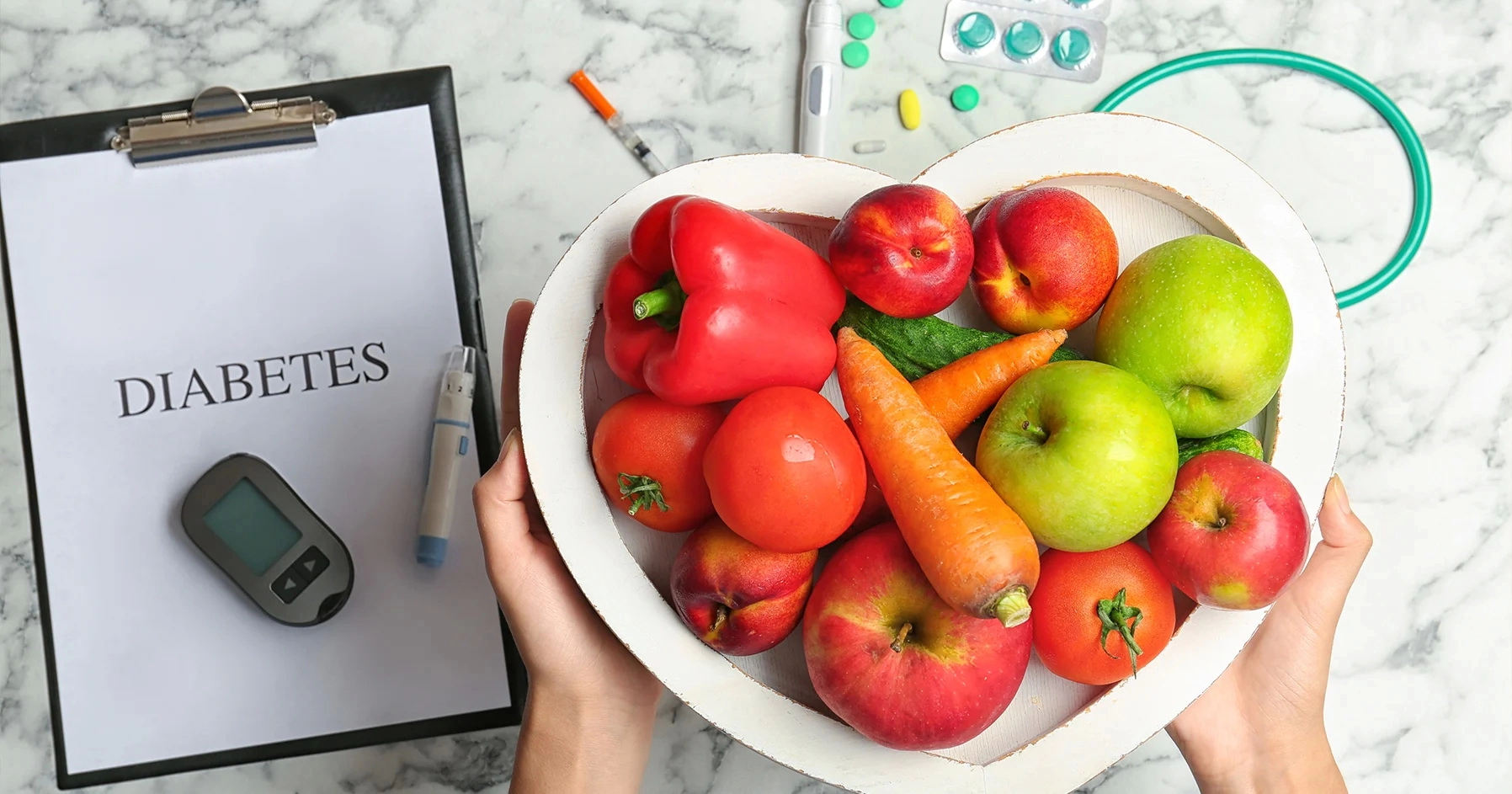What is Diabetes?
Diabetes is a disease that occurs when your blood glucose, also called blood sugar, is too high. Blood glucose is your main source of energy and comes from the food you eat. Insulin, a hormone made by the pancreas, helps glucose from food get into your cells to be used for energy. Sometimes your body doesn’t make enough—or any—insulin or doesn’t use insulin well. Glucose then stays in your blood and doesn’t reach your cells.
Sometimes people call diabetes “a touch of sugar” or “borderline diabetes.” These terms suggest that someone doesn’t really have diabetes or has a less serious case, but every case of diabetes is serious.
What are the different types of diabetes?
The most common types of diabetes are type 1, type 2, and gestational diabetes.
Type 1 diabetes
If you have type 1 diabetes, your body does not make insulin. Your immune system attacks and destroys the cells in your pancreas that make insulin. Type 1 diabetes is usually diagnosed in children and young adults, although it can appear at any age. People with type 1 diabetes need to take insulin every day to stay alive.
Type 2 diabetes
If you have type 2 diabetes, your body does not make or use insulin well. You can develop type 2 diabetes at any age, even during childhood. However, this type of diabetes occurs most often in middle-aged and older people. Type 2 is the most common type of diabetes.
Gestational diabetes
Gestational diabetes develops in some women when they are pregnant. Most of the time, this type of diabetes goes away after the baby is born. However, if you’ve had gestational diabetes, you have a greater chance of developing type 2 diabetes later in life. Sometimes diabetes diagnosed during pregnancy is actually type 2 diabetes.
Other types of diabetes
Less common types include monogenic diabetes, which is an inherited form of diabetes, and cystic fibrosis related disease.
Our Sucon Capsule helps in preventing long term complications of diabetes mellitus by supplementing an-oxidants and immuno-modulators.
Symptoms:
Some of the signs and symptoms of type 1 diabetes and type 2 diabetes are:
- Increased thirst
- Frequent urination
- Extreme hunger
- Unexplained weight loss
- Presence of ketones in the urine (ketones are a byproduct of the breakdown of muscle and fat that happens when there's not enough available insulin)
- Fatigue
- Irritability
- Blurred vision
- Slow-healing sores
- Frequent infections, such as gums or skin infections and vaginal infections
Type 1 diabetes can develop at any age, though it often appears during childhood or adolescence. Type 2 diabetes, the more common type, can develop at any age, though it's more common in people older than 40.
Polycystic ovary syndrome
Polycystic ovary syndrome (PCOS) affects young females after puberty. PCOS is caused by an imbalance of hormones, resulting in signs such as weight gain, irregular menstrual periods, and excess face and body hair. People with PCOS often have problems with metabolism that can result in insulin resistance and type 2 diabetes.
Risk factors:
Weight: Being overweight is a strong risk factor for type 2 diabetes in children. The more fatty tissue children have — especially inside and between the muscle and skin around the abdomen — the more resistant their bodies' cells become to insulin.
Family history: Children's risk of type 2 diabetes increases if they have a parent or sibling with the disease.
Age and sex: Many children develop type 2 diabetes in their early teens, but it may occur at any age. Adolescent girls are more likely to develop type 2 diabetes than are adolescent boys.
Low birth weight or preterm birth: Having a low birth weight is associated with a higher risk of developing type 2 diabetes. Babies born prematurely — before 39 to 42 weeks' gestation —have a greater risk of type 2 diabetes.
Treatments:
TYPE-1 Treatment
Treatment consists of insulin:
Treatment aims at maintaining normal blood sugar levels through regular monitoring, insulin therapy, diet and exercise.
Self-Care:
Diabetic diet, Nutrition Counseling, Carbohydrate Counting & Physical Exercise
Medications:
Insulin, Dietary Supplement & Hormone
TYPE-2 Treatment
Treatment consists of self care and antidiabetic medications:
Treatments include diet, exercise, medication and insulin therapy.
Self-Care:
Physical Exercise, Quitting Smoking, Weight Loss, Dietary Fiber, Nutrition Counseling & Diabetic diet
Medications:
Anti-Diabetic Medication, Insulin & Statin
Gestational Diabetes
Treatment consists of diet modifications:
Treatment strategies include daily blood sugar monitoring, a healthy diet, exercise and monitoring the baby. If blood sugar is too high, medication is required.
Self-Care:
Healthy Diet, Diabetic Diet & Physical Exercise
Medications:
Anti-Diabetic Medication & Insulin
(2).png)

